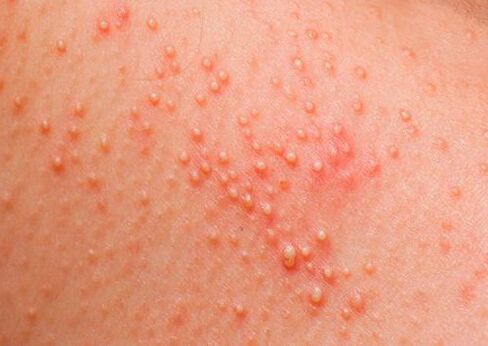Parasites are disease-causing organisms that can inhabit the human body, animal, and even some plants. There are many types of creatures in the world that penetrate the host's body, feed on its useful substances, actively multiply and leave waste products in its body, which leads to the development of all kinds of diseases.
Most often, worms are found in humans. These are worms of various lengths and sizes, which mainly live in the intestines of the vertebrate. But some helminths can migrate throughout the body, invading the muscles, liver, heart, joints, lungs, and even the brain.
Worms harm the body of their host, so everyone should know how to determine the presence of parasites in the body. But many people do not want to go to the hospital, waste their time and be tested for helminths unreasonably.
In this case, a person can find out if there are parasites in the body by paying attention to such an important criterion as the characteristic symptoms that develop with a certain type of helminthiasis. What if they are not there? This does not happen!
However, at the early stage of helminthic invasion, signs of vital activity of foreign microorganisms are poorly expressed or they are completely absent. The clinical picture becomes intense and pronounced only when the helminths are actively developing, because their larvae cannot parasitize in humans.
How to establish the presence of worms in the body without medical research?

Different types of parasites cause characteristic symptoms in the host. If they are identified in a timely manner and correctly deciphered, then this will make it possible to determine the infection even at an early stage.
Thus, the likelihood of incorrect diagnosis is minimized, which will allow for correct and effective deworming with the help of folk or medical antiparasitic agents.
So, in order to identify parasites in the human body, you need to pay attention to the symptoms:
- Teeth grinding at night.
- Allergic skin rashes - acne, acne, urticaria, herpes on the lips, eczema, red spots, papillomas, neurodermatitis, psoriasis, etc.
- Development of diseases of the upper respiratory tract (bronchitis, pneumonia, runny nose), which is characteristic of ascariasis and strongyloidosis.
- Bloating and diarrhea appear due to the fact that long worms interfere with the excretion of bile and pancreatic juice.
- Constipation occurs when worms form a ball that blocks the passage in the intestines.
- Discomfort in joints and muscles due to the migration of parasites.
- Severe irritability provoked by painful symptoms.
- A persistent dry cough that cannot be treated with standard antitussive drugs.

An increase in body temperature to subfebrile values is also observed. The causes of this condition may lie in allergies, blood intoxication, neurological disorders, disruptions in the functioning of internal organs and the brain, and in anemic syndrome.
In addition, the worm that lives in a person greatly reduces his immunity, as a result of which the patient often suffers from colds. Also, the patient develops a prolonged depression caused by intoxication of the body.
The characteristic symptoms of helminthiasis are nausea and vomiting, which are also caused by the release of toxic substances. Moreover, certain types of worms can live in the human body, producing specific hormones that affect the intestinal microflora, which causes diarrhea.
However, in some cases, such symptoms are not attributed to helminthiasis, since they are similar to signs of food poisoning. Although this can become a serious problem, because the later treatment is started, the more damage to the organs and systems of their host the parasites will have time to inflict.
Thus, in order to detect helminthiasis at home, a kind of test should be carried out. To this end, it is necessary to answer the following questions:
- Does itching in the anus at night?
- Are the lymph nodes swollen?
- Are skin rashes present?
- How often does insomnia occur?
- Do you experience vomiting and nausea?
- Are there joint and muscle pains?
- How often does flatulence develop?
- How often does the taste of bitterness appear in the mouth?
If a person gave seven affirmative answers to these questions, then with a high probability it can be argued that his body is infected with worms.
How to identify the type of helminthiasis by symptoms?

At home, you can determine which helminths have inhabited the human body. But this can be done only if the parasitosis has reached the active phase of its development.
Ascariasis and diphyllobothriasis are characterized by neurological signs that are most intense in young patients. Aggressive behavior and increased nervousness are due to the effects of toxic substances on the nervous system. For similar reasons, an infected person develops migraines and dizziness.
As a rule, trichinosis is accompanied by joint and muscle pain, as well as swelling of the face and eyelids. This is due to the peculiarities of the life of Trichinella, which live in the skeletal muscles. You can become infected with this parasite if you eat the meat of a wild animal or pork, which has been poorly thermally processed.
Giardiasis affects the functioning of the liver and kidneys and provokes all kinds of allergic reactions. Moreover, some people, when the body is damaged by lamblia, suffer from arthritis, which develops as a result of intoxication. Also, in an invasive patient, immunity is weakened, against the background of this, the following diseases develop:
- sinusitis;
- stomatitis;
- bacterial vaginosis and so on.

A characteristic sign of pinworm enterobiasis is itching in the anal canal. Moreover, most infected people experience disruptions in the work of the gastrointestinal tract.
Anemic syndrome is characteristic of schistosomiasis. There are also manifestations of dysbiosis (pathogenic microorganisms inhibit the favorable microflora).
With cloronchiasis, fascionellosis and opisthorchiasis, the gallbladder is affected and icteric syndrome develops. Moreover, against the background of the course of these helminthiases, the liver and spleen increase.
Strongyloidiasis manifests itself in a variety of symptoms. So, with its progression, there are malfunctions in the gastrointestinal tract, dyspeptic disorders and allergic manifestations.
How to determine if there are helminth eggs without laboratory conditions? When the worms are in the multiplying phase, it is quite easy to find out about their presence in the body. To do this, you need to take an analysis for the eggs of parasites.
With the development of opisthorchiasis, you can conduct a study at home on your own. For this purpose, adhesive tape or tape must be attached to the skin in the anal area.
It is best to carry out this procedure immediately after waking up in the morning. If a person has opisthorchias, then their eggs will be identified on the adhesive surface of the tape.
Laboratory methods for detecting parasites

If a patient has more than three characteristic symptoms of helminthiasis, then he should contact a medical institution so that the determination of the presence of parasites at home can be laboratory confirmed.
The first step in case of suspicion of helminthic invasion is the study of feces. This allows you to identify the eggs of tapeworms, round helminths and flukes. However, for accurate confirmation of the diagnosis, tests must be taken three times every few days.
To determine enterobiasis, a scraping is taken near the anus. Also, one of the most accurate and convenient tests for the patient is ELISA, which allows you to detect antibodies in the blood that are produced by the body when parasitizing pathogenic microorganisms.
Sometimes bioresonance diagnostics is performed, which studies the frequency of parasites. This method is very informative, as it determines the state of the body as a whole. In addition, in addition to parasites, such a study allows you to find out the state of immunity, which weakens it, to identify other diseases, as well as pathogenic fungi, bacteria and viruses.























